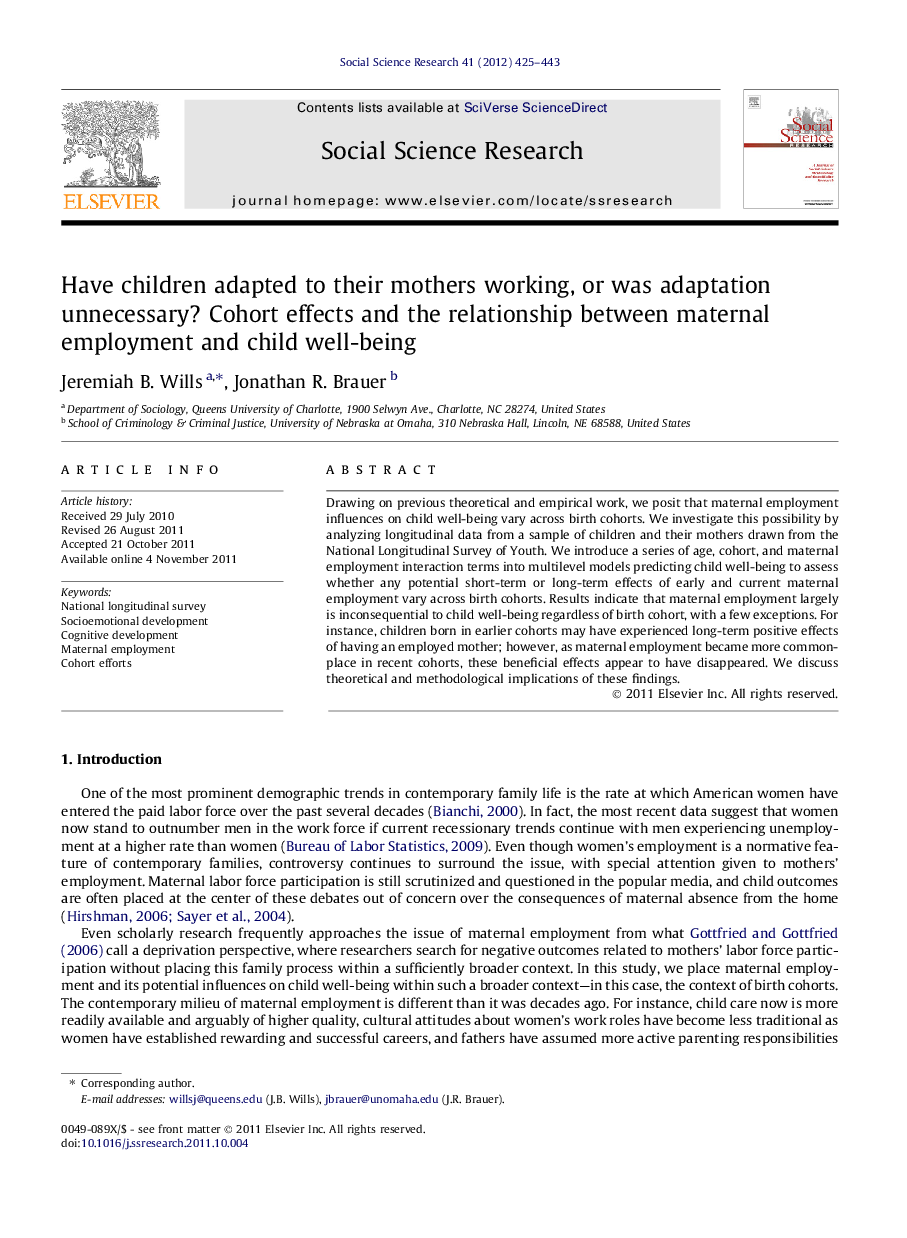| Article ID | Journal | Published Year | Pages | File Type |
|---|---|---|---|---|
| 955970 | Social Science Research | 2012 | 19 Pages |
Drawing on previous theoretical and empirical work, we posit that maternal employment influences on child well-being vary across birth cohorts. We investigate this possibility by analyzing longitudinal data from a sample of children and their mothers drawn from the National Longitudinal Survey of Youth. We introduce a series of age, cohort, and maternal employment interaction terms into multilevel models predicting child well-being to assess whether any potential short-term or long-term effects of early and current maternal employment vary across birth cohorts. Results indicate that maternal employment largely is inconsequential to child well-being regardless of birth cohort, with a few exceptions. For instance, children born in earlier cohorts may have experienced long-term positive effects of having an employed mother; however, as maternal employment became more commonplace in recent cohorts, these beneficial effects appear to have disappeared. We discuss theoretical and methodological implications of these findings.
► We study if maternal employment effects on child well-being vary by birth cohorts. ► Regardless of birth cohort, we find maternal employment is mostly inconsequential. ► Children from earlier cohorts show positive effects of having an employed mother. ► These beneficial effects appear to have disappeared in recent cohorts.
